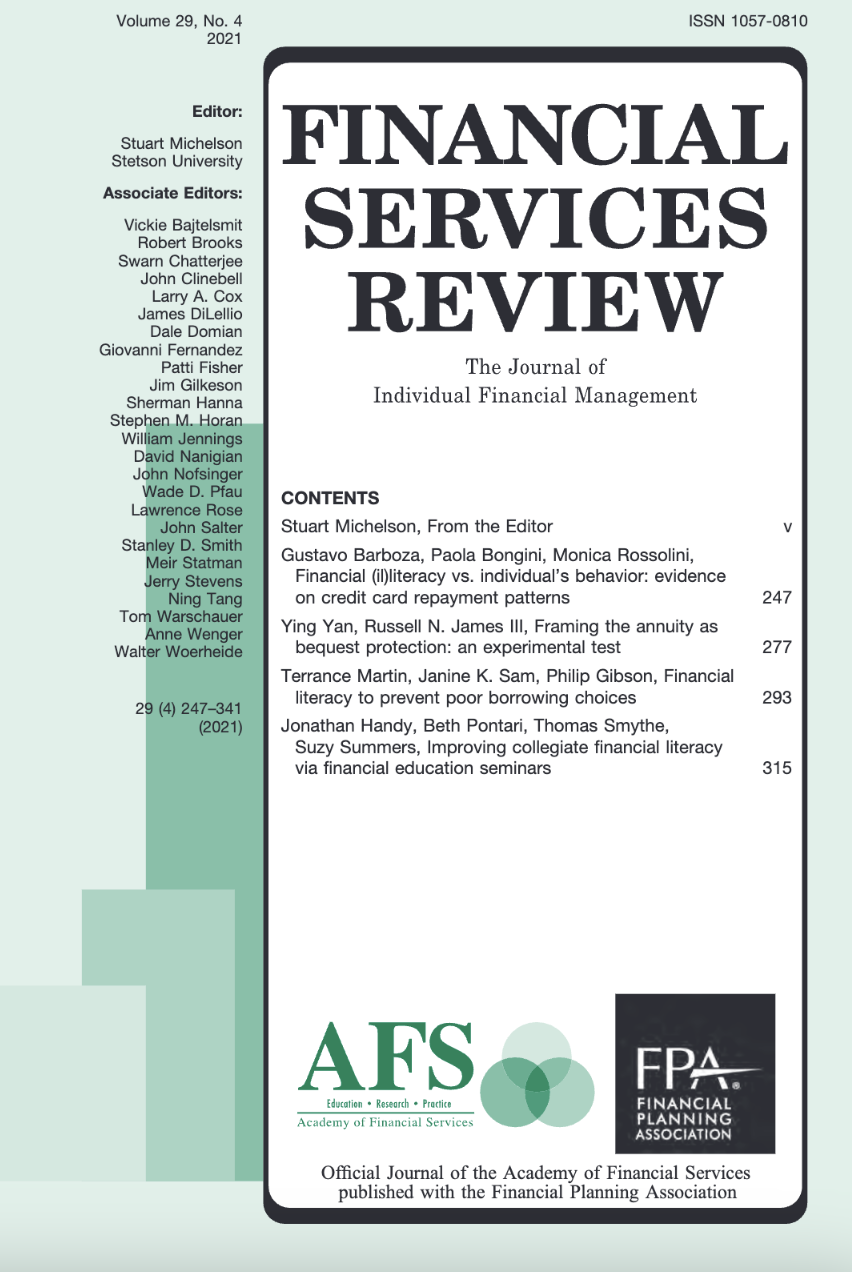Financial Literacy to Prevent Poor Borrowing Choices
DOI:
https://doi.org/10.61190/fsr.v29i4.3464Keywords:
High-cost borrowing, Retirement plan loans, Financial literacy, Retirement planningAbstract
Working Americans face the new reality of having to fund and manage their retirement while fac- ing rising levels of indebtedness. A basic level of financial knowledge is essential to make good long-term financial decisions. Using the 2015 National Financial Capacity Study, we investigate the impact of financial literacy on the decision to access retirement plan loans before retirement or use one or more high-cost lenders. Our results show that being financially literate reduces the likelihood of using high-cost lenders and using retirement-plan loans. Furthermore, we find evidence of a nega- tive relation between financial literacy and myopic spending.
Downloads
Published
How to Cite
Issue
Section
License
Copyright (c) 2021 Academy of Financial Services

This work is licensed under a Creative Commons Attribution-NonCommercial 4.0 International License.
Author(s) retain copyright and grant the Journal right of first publication with the work simultaneously licensed under a Creative Commons Attribution-NonCommercial 4.0 International License that allows to share the work with an acknowledgment of the work's authorship and initial publication in this Journal.
This license allows the author to remix, tweak, and build upon the original work non-commercially. The new work(s) must be non-commercial and acknowledge the original work.


